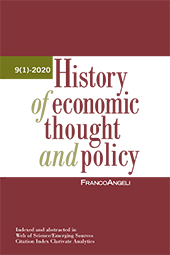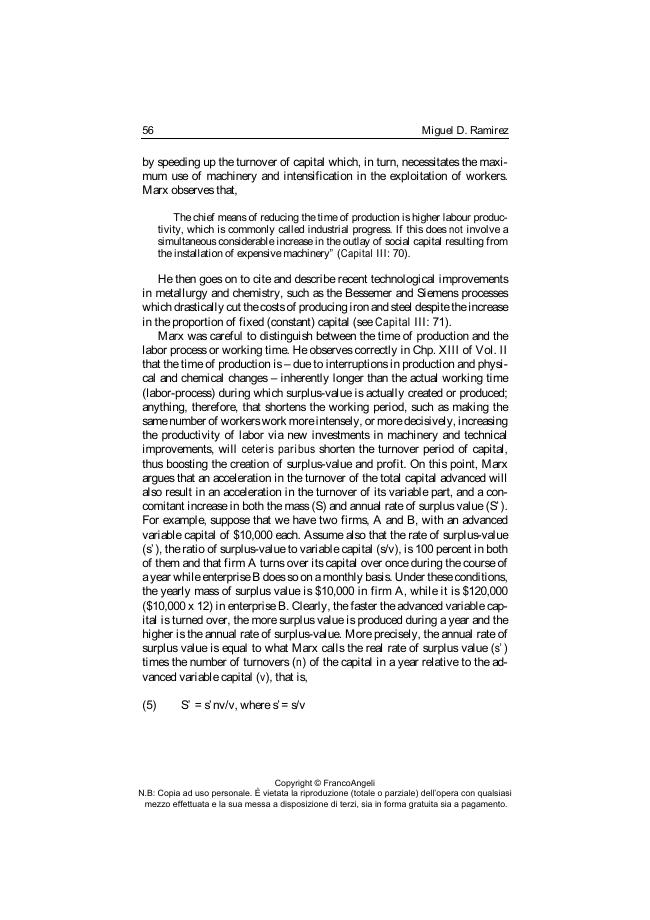Capital as a social process : a Marxian perspective
41-71 p.
This paper analyzes the very important notion of capital from a Marxian perspective as opposed to a neoclassical one. It is argued that when capital is viewed as a historically determined social process (relation), rather than as a thing or a collection of things, it tends to assume certain specific forms more often than others depending on the particular stage of economic history. Capital thus refers simultaneously to social relations and to things. Given this frame of reference, notions such as money and property capital are more easily accommodated and consequently are not written off as financial or fictitious capital not real capital because they produce nothing. The paper also focuses on Marx's important analysis of the time of production and the turnover of capital in terms of the production of surplusvalue (profit).
It then examines Marx's equally important and prescient analysis of how the turnover speed of capital is affected by the time of circulation of commodities (the realization of surplusvalue) and the growing use of credit (in its various forms) in the capitalist system. Finally, the paper turns its attention to the economic role of time as it relates to interest bearing capital one whose clear comprehension rests on viewing capital as a social construct. [Publisher's text].
Forma parte de
History of Economic Thought and Policy : 1, 2020-
Artículos del mismo número (disponibles individualmente)
-
Información
Código DOI: 10.3280/SPE2020-001003
ISSN: 2280-188X
KEYWORDS
- Capital, commodity capital, credit, crises, exchange-value, interest-bearing capital, money capital, monetary circuit model, productive capital, time of production and circulation, turnover speed of capital, rate of surplus-value (profit)



